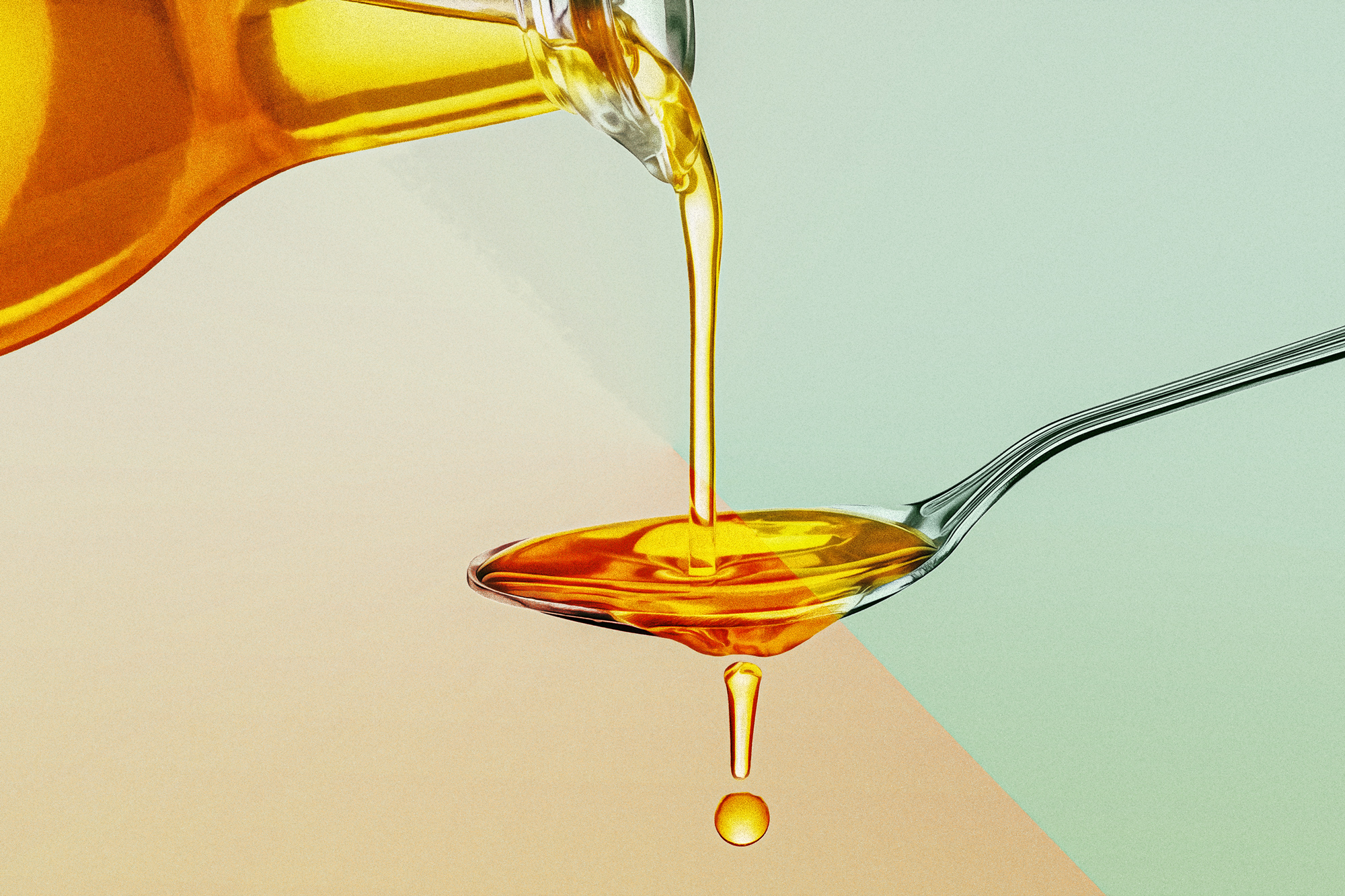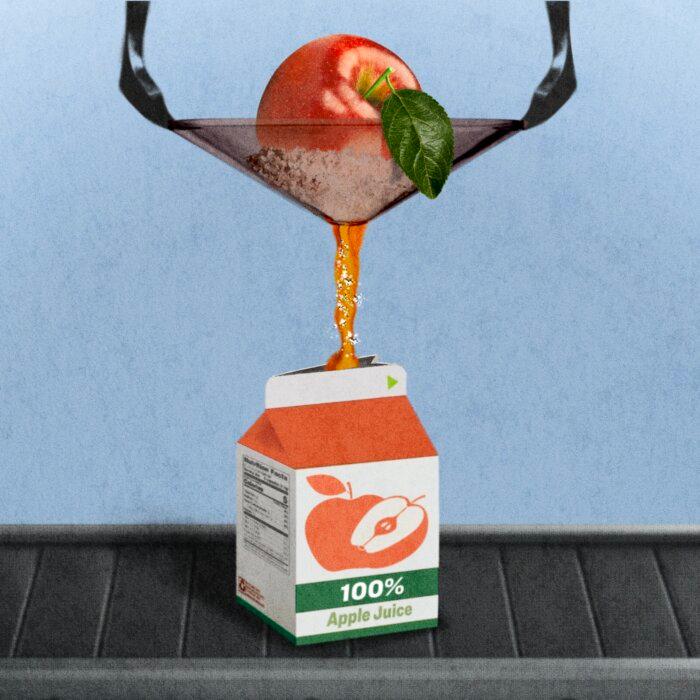When Robert F. Kennedy Jr. declared that it was time to “make frying oil tallow again,” he reignited a sizzling debate simmering in nutrition circles for years.
The new head of the Department of Health and Human Services (HHS) has expressed concerns about seed oils, ubiquitous ingredients in processed foods, from coffee creamers to deep fryers.
“They’re very, very cheap, but they are associated with all kinds of very serious illnesses, including body-wide inflammation, which affects all of our health. It’s one of the worst things you could eat, and it’s almost impossible to avoid.”
What Kennedy contends goes against long-standing recommendations from nutritionists and medical associations.
The 2-Fold Concern
The central debate about seed oil revolves around one nutrient—seed oils high in linoleic acid, a type of omega-6 fatty acid.Your body needs linoleic acid for brain and heart function, but having too much of it may be problematic.
Omega-6 Reduces Omega-3 Levels
One concern is that omega-6 fats in seed oils reduce omega-3 fatty acid levels in the body because they compete with essential omega-3 fatty acids for metabolism.Omega-6 and omega-3 fatty acids need enzymes to convert them into fatty molecules critical for bodily function. A diet high in omega-6s can interfere with the enzyme conversion of omega-3s into important fatty acids such as docosahexaenoic acid (DHA).

Linoleic acid is converted to arachidonic acid, a polyunsaturated fatty acid. Alpha-linolenic acid, the essential omega-3 fatty acid, is transformed into necessary fats such as eicosapentaenoic acid (EPA) and DHA, which help keep cells healthy and are crucial for brain, heart, and eye health.
Omega-6 May Increase Inflammation
The second concern is that seed oils may promote inflammation, he said, although this has been debated.Arachidonic acid, a product of linoleic acid conversion, is a precursor to many compounds, some of which are inflammatory, such as prostaglandins and leukotrienes.
Other experts disagree.
Penny Kris-Etherton, a distinguished professor of nutrition at Penn State University, told The Epoch Times that it is misleading to say that omega-6 fatty acids promote inflammation because they can also be made into many anti-inflammatory products.
“People just have this biochemical pathway in their mind that it’s supposed to increase inflammation, but it doesn’t,” William Harris, professor of biomedical and translational sciences at the University of South Dakota, told The Epoch Times. “There are many processes in our bodies that will counteract if you develop or eat something that’s maybe pro-oxidative or pro-inflammatory—there are other systems that will shut it down and block it. And people don’t take these into account.”
While omega-6 fats may be inflammatory, omega-3 fatty acids are consistently anti-inflammatory. So, the competition with omega-3 fats for conversion gives credence to the argument that omega-6 fats may drive inflammation.
The Benefits of Linoleic Acids
Despite concerns about excess omega-6 fats in the diet, some research has found linoleic acid beneficial for health.“We see that the people that have the highest blood levels of omega-6 linoleic acid have the lowest risk for dying,” Harris said, adding that there may be a case against seed oils for their other components.
“Omega-6 could be good for you, and omega-3 can be good for you,” Harris said.
Kris-Etherton echoes that people should not decrease their omega-6 fatty acid intake.
However, experts have disagreed on how to make sense of the current research on seed oils.
“A lot of the evidence on linoleic acid and heart disease is based on observational studies, where it’s impossible to establish causality,” Taha said.
Multiple studies have shown that having a high omega-6 to omega-3 ratio is linked to higher risks of chronic diseases such as Type 2 diabetes.

Tom Brenna, professor of pediatrics, human nutrition, and chemistry at the University of Texas, told The Epoch Times that there may be a genetic component to how different people process fats and oils. He suggests that some people are genetically more sensitive to linoleic acids while others are less so.
Heavy Processing
Another concern about seed oils is that they have been highly processed to make them shelf-stable, neutral-flavored oils.Traditional cooking oils such as tallow and butter are mostly composed of saturated fat and are naturally shelf-stable.
In contrast, seed oils such as canola, corn, cottonseed, and grapeseed oils are primarily made up of polyunsaturated fats.
Polyunsaturated fats have multiple double bonds in their chain that are hungry for oxygen, making them highly unstable. They readily react with heat, light, and oxygen, producing oxidants, which can cause oils to become rancid.
Because of stability issues, most seed oils on the market have been heavily processed. They are first dissolved into a solvent, traditionally hexane, and then deodorized, bleached, and winterized to remove undesirable plant waxes and more. Antioxidants are added to prevent spontaneous oxidation.
Brenna said that the processing of these oils is different from our typical understanding of food processing. Adding chemical solvents, bleaching, and deodorizing food ingredients are mostly specific to seed oils.
“Processing is a general word,” he said. The processing that these oils go through is “basically chemical engineering,” and heavy chemical processing is going to lead to contaminants that are bad for health.
“It’s a common understanding that if we don’t pay any attention to the way we do it and just optimize costs by processing it for long periods of time or using very harsh chemicals, we’re going to create bad stuff,” Brenna said, giving the example of partial hydrogenation that produces trans fats that are harmful to the body.
Because of its health risks, the United States demanded that hydrogenation be phased out of its products in 2018.
Few studies have been done to compare how seed oil processing affects health outcomes in people.

Brenna and his team found that when liver cells were given gently processed coconut oil, they did not produce cholesterol, whereas exposure to refined coconut oils at all stages of processing did.
They also tested contaminants generated during the refinement process, which are present in processed oils, which also increased cholesterol.
Cell studies are considered preliminary research in the field of human research. Nonetheless, Brenna’s research gives a glimpse into another question that has not been thoroughly explored—could the processing of cooking oils be the problem?
More studies involving animals and humans would be needed to assess the effects of processing.
What’s Being Replaced
One merit that fats and oils that are mostly composed of saturated fats such as tallow, butter, ghee, and coconut oil have when compared with seed oils is that they are more stable when exposed to heat and oxygen, making them less likely to spoil and, and therefore, ideal for cooking.It is not guaranteed that tallow would be better than the current plant-based oils in nutritional profiles, Brenna said. This is largely dependent on what is being replaced with tallow.
Olive oil, a type of fruit oil, for example, is known to be healthy and has been used for thousands of years.
Nutrition-wise, it may not necessarily be better to replace olive oil with tallow, he said.
Most seed oils, with the exception of canola and some sunflower oils, are high in polyunsaturated fat. This means that they have many double bonds that are highly reactive to heat and oxygen, causing them to produce more oxidants and go rancid more quickly than animal fats when cooked.
“We humans have an exquisite sensitivity to rancid products,” Brenna said.
Research on the long-term health effects of consuming oxidized, rancid cooking oils is ongoing.
Other Recommendations
While some research suggests that replacing saturated fats with plant-based oils may lower health risks, there are observational studies that show correlation, not causation, and other factors that may be involved.Experts, depending on whether they believe that seed oils are healthy, give different recommendations for which cooking oils are healthiest.
Harris, whose research has shown that high linoleic acid in the body is associated with reduced mortality and cardiovascular disease, said that all vegetable oils are good.
Olive oil is generally recommended by all experts regardless of their opinion on seed oils because of its well-known cardiovascular benefits. However, given its low smoke point, it is recommended only for medium-heat cooking and raw applications.
This means that olive oil should not be used for high-heat cooking, such as deep frying, or for long cooking times.

Smoke point, which is the temperature at which the oil starts to burn, is one thing that people should consider, according to Brenna. Oils with a low smoke point will burn easily and give off harmful chemicals, even if they are healthy oils.
Burning can release harmful chemicals, but it is not directly related to its rancidity, he said. Refined seed oils high in polyunsaturated fat can have the same smoke point as saturated fats because the processing has removed the fats and oils prone to smoking.
Oils that are high in polyunsaturated fat, such as unrefined corn and soy oils, have a low smoke point because of short-chain fatty acids that lower the smoke point, Brenna said.
These oils can be used for raw applications, but unprocessed oils are also highly prone to rancidity, so they may not taste very appealing when they start to degrade from sunlight and exposure to the air.
Brenna said that people concerned about seed oils can consider fruit oils such as avocado and olive oils. Avocado oil, mostly composed of monounsaturated fat, is less prone to oxidation than polyunsaturated fat when heated.
Avocado oil also has a high smoke point, making it suitable for high-heat cooking. However, it should be noted that most avocado oils on the market are not cold-pressed but processed using chemical solvents and refining.
Ghee and tallow are highly heat stable and are suitable for frying. Dr. Mark Hyman, physician, and author of several best-selling books on diet, recommends grass-fed ghee and tallow for cooking and frying because of their higher smoke points. Lard, or rendered pork fat, has a lower smoke point than ghee and tallow.
Coconut oil is also stable and good for high-heat applications but should be consumed in moderation, Hyman told The Epoch Times.
Not everyone should eat saturated fat, Hyman said.
People who carry the APOE4 gene variant, which is important for processing fat and cholesterol, “may have a heightened risk of cardiovascular disease when consuming diets high in saturated fats,” he said.
Those who carry APOE4 have a genetic predisposition to high cholesterol levels in their blood, which can predispose them to heart disease. Your doctor can order a genetic test for APOE4.
The incoming head of the Food and Drug Administration, Dr. Marty Makary, also said in his recent Senate confirmation that there should be a review of the products.
Taha agreed that more good research is needed.
“That’s why you do a randomized control trial,” he said.












